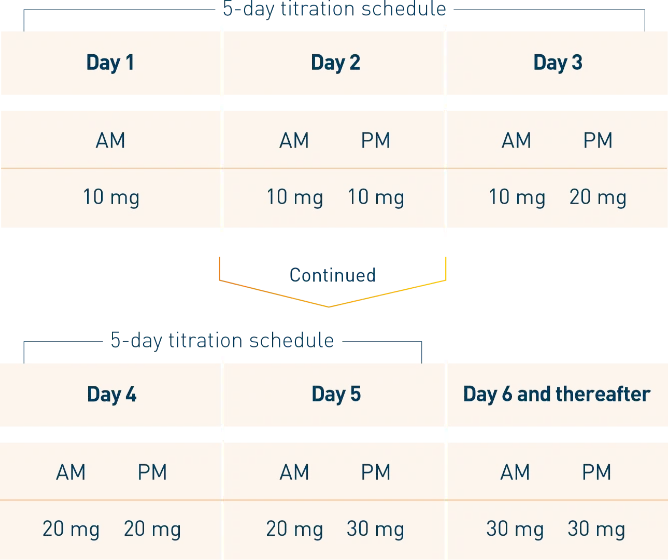First and only oral therapy approved for mild, moderate, and severe plaque psoriasis, and active PsA SEE THE DATA

Plaque Psoriasis
4 INDICATIONS Otezla® (apremilast) is indicated for the treatment of adult patients with plaque psoriasis who are candidates for phototherapy or systemic therapy. Read more
*Estimates of patients treated reflect global data since launch (Apr 2014-Mar 2023; US=59% of data). Calculations based on observed drug utilization parameters and number of units distributed. Utilization patterns change over time to best represent current markets.
FDA, U.S. Food and Drug Administration; PsA, psoriatic arthritis; TB, tuberculosis.
References: 1. Otezla [package insert]. Thousand Oaks, CA: Amgen Inc. 2. Data on file, Amgen Inc. 3. Otezla® (apremilast) FDA approval letter. March 21, 2014.

*Creatinine clearance (CLcr) <30 mL/min estimated by the Cockcroft-Gault equation.

†Pediatric patients, 6 years of age or older, with moderate to severe plaque psoriasis, and weighing at least 20 kg.
Titration of Otezla is intended to reduce the gastrointestinal symptoms associated with initiation of therapy 1
Pediatric patients with severe renal impairment: 1,*
The maintenance dose of Otezla should be reduced to 30 mg once daily in pediatric patients who weigh at least 50 kg or 20 mg once daily in pediatric patients who weigh 20 kg to <50 kg.
*Creatinine clearance (CLcr) <30 mL/min estimated by the Cockcroft-Gault equation.

Provide the 14-day sample Starter Pack to patients before they leave the office or prescribe the 28-day Starter Pack through their specialty pharmacy of choice.
Contraindications
Otezla® (apremilast) is contraindicated in patients with a known hypersensitivity to apremilast or to any of the excipients in the formulationWarnings and Precautions
Hypersensitivity reactions, including angioedema and anaphylaxis, have been reported during postmarketing surveillance. If signs or symptoms of serious hypersensitivity reactions occur, discontinue Otezla and institute appropriate therapyContraindications
Warnings and Precautions
Adverse Reactions
Use in Specific Populations
Please click here for the full Prescribing Information.
Otezla® is indicated for the treatment of:
References: 1. Otezla [package insert]. Thousand Oaks, CA: Amgen Inc. 2. Data on file, Amgen Inc. 3. Papp K, Reich K, Leonardi CL, et al. J Am Acad Dermatol. 2015;73(1):37-49. 4. Paul C, Cather J, Gooderham M, et al. Br J Dermatol. 2015;173(6):1387-1399. 5. Yélamos O, Ros S, Puig L. Psoriasis (Auckl). 2015;5:109-115.
6. Hugtenburg JG, Timmers L, Elders PJ, et al. Patient Prefer Adherence. 2013;7:675-682. 7. Van Voorhees AS, Feldman SR, Lebwohl MG, et al. The Psoriasis and Psoriatic Arthritis Pocket Guide. psoriasis.org/the-pocket-guide/ Accessed February 1, 2024.